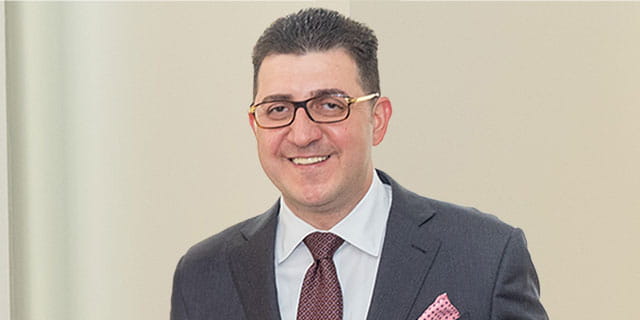$7 million research award to UH Neurological Institute will evolve acute stroke care
Study funded by the Patient-Centered Outcomes Research Institute (PCORI) will evaluate the utility of endovascular thrombectomy in patients presenting beyond 24 hours of stroke onset

University Hospitals has been awarded $7 million in research funding by the Patient-Centered Outcomes Research Institute (PCORI) to evaluate the utility of endovascular thrombectomy for treating stroke patients who present beyond 24 hours of the onset of symptoms. The study will be led by Amrou Sarraj, MD, FAHA, FSVIN, Director, Stroke Center and Stroke Systems, UH Neurological Institute, and George M. Humphrey II Chair in Neurology.
Endovascular thrombectomy (EVT) is a procedure that involves removing a blood clot from the brain via catheter and is one of the main treatments for acute ischemic stroke. EVT has been shown to be highly effective when performed within 24 hours of symptom-onset, improving outcomes by two-to-three-fold. However, many patients seek care beyond this time frame, limiting their treatment options, Currently, EVT is only performed on about 10 percent of patients who present after 24 hours.
Dr. Sarraj will conduct a study across sites in the U.S., Canada, Europe, Australia and New Zealand to evaluate the benefits and risks of EVT for patients who present beyond the usual time frame. The trial will also aim to reduce treatment disparities among elderly patients who live alone and those living in rural and remote communities, populations that may be disqualified from EVT because of an inability to quickly access care.
“EVT has revolutionized acute stroke management, but a lack of randomized evidence prevents us from treating patients universally with this state-of-the-art technology,” said Dr. Sarraj. “We expect this study to have a major impact on systems of care and to help many patients.”
This new study was selected through PCORI’s highly competitive review process in which patients, caregivers and other stakeholders join scientists to evaluate proposals.


